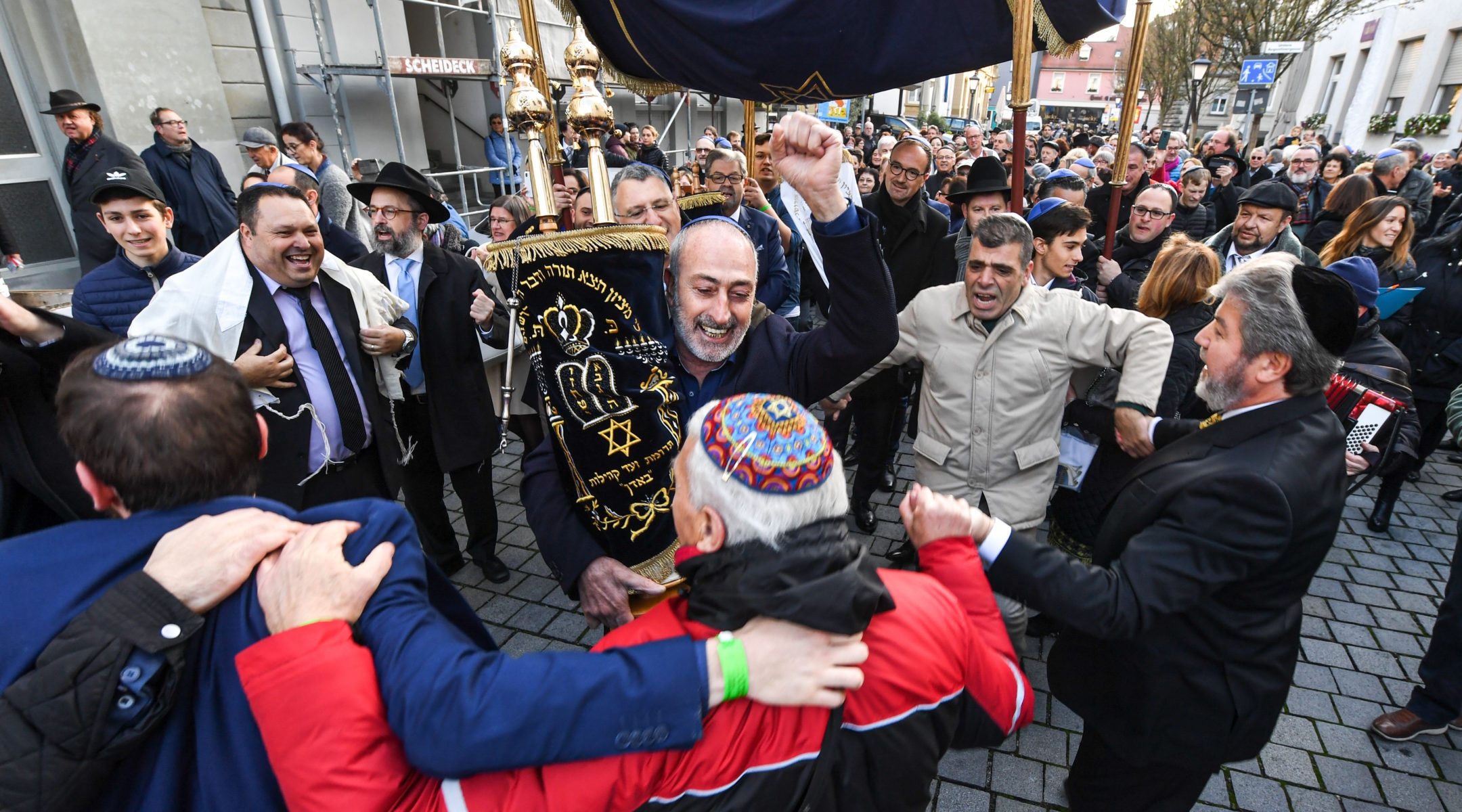(JTA) – When synagogues reopen in Germany in the coming weeks, there will be no handshakes, no hugs and no parading with the Torah, a mainstay of Shabbat services.
That’s according to rules released Friday by the Central Council of Jews in Germany, the umbrella group for some 100 synagogues and 100,000 members of Jewish communities across the country.
The group created the rules after government officials said that with new coronavirus cases waning in the country, synagogues and other houses of worship could reopen — perhaps as soon as May 5.
But services will not be the same as before. Social distancing will continue in hopes of keeping the virus at bay, and some core components of services will not be allowed in a possible sign of what synagogues in other countries will experience as limited gatherings become permitted there.
“For us Jews, this is the first time we have experienced a limitation of religious freedom since the end of World War II,” Josef Schuster, head of the Central Council, said in an essay published Thursday in the weekly Juedische Allgemeine. Doors may soon reopen, but, he wrote, “We will have to change: In the long run, our prayer services will be different from what we are used to.”
The rules, composed with help from Germany’s Orthodox and liberal rabbinical conferences as well as the regional Jewish associations and larger congregations, include:
- Maintaining a distance of two meters (more than six feet) between congregants. Only family members from the same household may sit together.
- Only the cantor and rabbi can go without face masks while they are on the bimah and distant from congregants; congregants must wear protective masks.
- There will be no handshakes, let alone hugs and kisses. “There is no halachic commandment to shake hands on Shabbat,” the text reads, referring to Jewish law.
- Not even the Torah scroll or mezuzahs on doorposts can be kissed, as is customary. In fact, the Torah is not even to be carried through the congregation.
- Those “called up” to the Torah are to stand away from the bimah.
- Prayerbooks and Bibles are to be disinfected before and after services.
The council also recommended that those who wish to attend services register with their synagogues in advance, and that lists of attendees be made in order to help trace chains of infection, should anyone fall ill.
“It’s important not to whine and complain about the restrictions,” Schuster said in his comments to the Jewish weekly. “It is better to be able to listen to the cantor in the synagogue in a small community while wearing a mask, than to sit alone at home.”
JTA has documented Jewish history in real-time for over a century. Keep our journalism strong by joining us in supporting independent, award-winning reporting.






